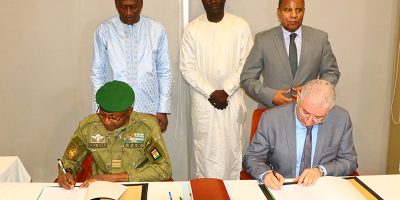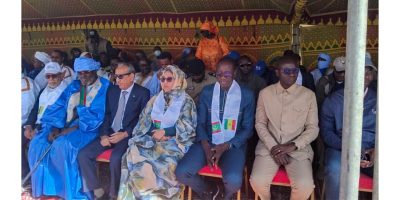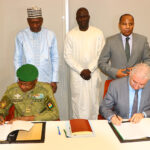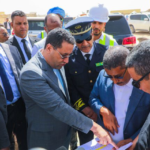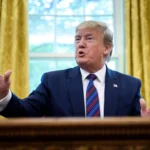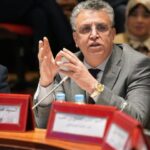— As Enugu, Benue woo investors
–As World Bank pledges support of $750m
In a determined effort to attract foreign direct investment (FDI) to the Nigeria, the Federal Government on Wednesday announced the introduction of the Regulatory Impact Analysis (RIA) Framework to create a more favourable and business-friendly environment.
At the Second Existing Foreign Direct Investors Roundtable and Regulators’ Forum and the launch of Nigeria’s regulatory impact analysis framework, the State Action Plans for Enabling Business Reforms Programme to improve state-level business environments for the initiative with $750 million World Bank support was unveiled.
Speaking at the event, the Director-General of the Presidential Enabling Business Environment Council (PEBEC), Zahrah Audu, stressed the significance of a Nigeria that is both competitive and investment-friendly.
She explained that the government was striving to finance incentives that would carry out reforms aimed at helping Small and Medium Enterprises, SMEs, to generate employment, and draw in investments.
Audu noted that PEBEC was founded so as to remove long-standing barriers to doing business in Nigeria, adding that the Council had carried out more than 200 daring changes in a variety of industries over the years, concentrating on six strategic work streams to maintain progress.
She said: “Today’s launch of the Regulatory Impact Analysis Framework is a major milestone in our regulatory reforms.
“This framework ensures that all new regulations undergo thorough assessments to evaluate their economic, social, and environmental impact, reducing unnecessary business hurdles while safeguarding public interests.”
Audu said that FDI is crucial for Nigeria’s economic diversification, job creation, and technological advancement.
According to her, “To attract and retain FDI, we must streamline our regulatory processes.
“The RIA Framework will foster a predictable, transparent, and business-friendly regulatory environment. By collaborating with local and international institutions, we can bridge infrastructure gaps, boost productivity, and lower the cost of doing business.”
She reaffirmed President Bola Tinubu’s administration’s commitment to supporting both new and existing investors, ensuring that policies align with investor expectations.
She reiterated the need for continued public-private dialogue to ensure effective implementation of reforms.
“We are committed to making Nigeria the preferred investment destination in Africa. Together, let’s create an environment where businesses thrive, investments flourish, and millions of Nigerians benefit from economic growth,” she said.
“With the RIA Framework in place, Nigeria moves closer to its goal of attracting sustainable foreign investment and fostering long-term economic development.”
Also speaking, the Benue State governor, Rev. Fr. Hyacinth Alia identified the state as a premier destination for investment, underscoring its the strategic location, abundant natural resources, and commitment to fostering a business-friendly environment.
He said: “Benue is strategically located in the heart of Nigeria, making it an ideal hub for businesses looking to expand their reach across the nation.”
He highlighted the state’s rich agricultural potential, declaring that its fertile soil and favourable climate are key assets for investors in the agricultural sector.
While inviting partnerships that could leverage these advantages, the governor said: “We are particularly focused on crops such as soya beans, grains, and livestock farming.”
In addition to agriculture, Alia emphasised the opportunities in manufacturing and tourism, saying : “We are seeking investors to establish processing and manufacturing plants in Benue State.
“Our abundant natural resources and strategic location provide a solid foundation for industrial growth.”
The governor also pointed out Benue’s untapped solid minerals and tourist attractions, such as the Benue National Park and the Katsina Allah River, urging investors to help develop the state’s tourism infrastructure.
To further entice investors, Alia announced that his administration is committed to providing personalized support throughout the investment process.
“We will offer necessary assistance and facilitation to ensure a seamless and successful investment experience,” he assured attendees.
He also mentioned the possibility of waivers and incentives to help investors overcome challenges and a friendly business environment.
Alia stated, “Our administration is dedicated to ensuring that your investments are safe and secure,” expressing confidence in the state’s potential to become a major economic hub in Nigeria.
He said: “I invite you to join us on this journey. Together, we can unlock the vast potentials of our state and drive economic growth for our people.”
On his part, Governor Peter Mbah of Enugu State, outlined an ambitious seven fold economic growth projection over the next six years, targeting a 27 per cent compounded annual growth rate.
Governor Mbah stressed that private sector investment is central to achieving this vision, expressing his administration’s ambitious vision to transform the state’s economy.
He also expressed his excitement about the potential investments in attendance, stating, “The amount of money in this room is palpable, and I hope to take some of it back to Enugu.”
The Enough State Governor announced a bold target to grow Enugu’s gross domestic product (GDP) from $4.4 billion to $30 billion within eight years, representing a seven-fold increase.
“Our vision is to create a thriving economic environment that attracts private sector investment, which we view as the lifeblood of our growth,” he emphasized.
The governor highlighted the importance of such fora in facilitating discussions that could lead to actionable investments.
He praised the collaborative efforts of the Enugu State Investment Development Authority and federal regulatory agencies, stating, “We are committed to creating an enabling environment that de-risks investment flows.”
Mbah assured investors that his government has executed numerous bankable projects across various sectors, significantly reducing the time and resources needed for feasibility studies.
Reflecting on Enugu’s historical significance as an economic hub, Mbah remarked, “We are on a journey to restore Enugu’s status as a premier destination for business and tourism.”

Sign up for free AllAfrica Newsletters
Get the latest in African news delivered straight to your inbox
Success!
Almost finished…
We need to confirm your email address.
To complete the process, please follow the instructions in the email we just sent you.
Error!
There was a problem processing your submission. Please try again later.
He pointed out that strategic investments in infrastructure and regulatory frameworks are essential for achieving this vision.
He also addressed the need for transparency in government dealings with investors, saying : “You can take our commitment to transparency for granted; it’s in our DNA.”
He outlined plans for a one-stop shop through the Enugu State Investment Development Authority, which will streamline business registration and licensing processes.
In addition to economic growth, Mbah stressed the importance of education and human capital development.
“We are investing heavily in education because nothing transforms lives like quality education,” he said.
The governor announced plans to equip 40,000 youths annually with digital skills and practical training, aiming to align educational outcomes with industry needs.
The governor invited investors to explore opportunities in Enugu, assuring, “we will work with you every step of the way.”
The Minister of Industry, Trade, and Investment, Jumoke Oduwole, highlighted that over 70 per cent of American businesses view the government’s recent reforms positively, indicating growing investor confidence.
Oduwole emphasised the importance of trade facilitation and collaboration with various chambers of commerce to optimize the African Continental Free Trade Area (AfCFTA) agreement.
She acknowledged the challenges posed by inflation and infrastructure deficits but expressed optimism about Nigeria’s economic trajectory, citing a trade surplus of $8 billion in 2024.




